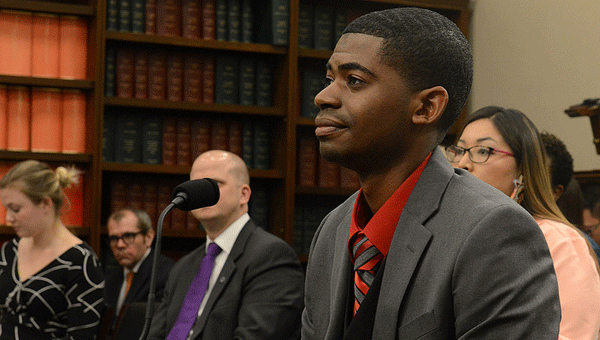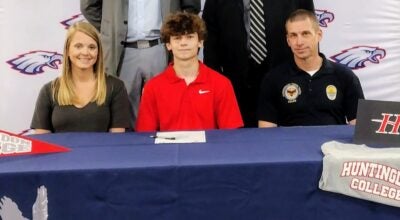Local student testifies before Congress in Washington, D.C.
Published 6:52 pm Tuesday, March 14, 2017

Greenville native Joseph Longmire testified before Congress at Capiton Hill in Washington, DC., and penned an op-ed to detail his experiences for his hometown.
By Joseph Longmire
Special contributor to the Advocate
Living in Greenville all my life helped me believe in the American Dream.
But belief isn’t enough. You also need hard work. I learned that from my parents, who work seven days a week to support their four children.
Yet sometimes, neither belief nor hard work can solve everything. That’s what it was like when I attended college. I needed academic support to do my best.
I wasn’t sure of what I wanted to do, although I knew I wanted a career in the helping professions. Yet I didn’t know exactly what career path to choose.
Figuring out how to navigate the college bureaucracy wasn’t easy. That’s where federal TRIO programs help – a lot.
TRIO is sort of an umbrella term. It applies to eight federally-funded programs to help students succeed in college who are low income, disabled or “first generation,” meaning those whose parents never graduated from college.
They start as early as middle school (Talent Search) and high school (Upward Bound). The one that helped me – Student Support Services – starts in college.
The programs include coaching and academic help; extra classes; help in applying for college and financial aid, and always, advice and encouragement.
I know it’s easy to get cynical about federal programs – things we imagine were dreamed up by someone far away in Washington. But this program helps me and hundreds of other students succeed. That became apparent when I started attending Lurleen B. Wallace Community College.
I did well in high school, but I struggled with several of my college courses. I got academic assistance from the Student Support Services staff.
The program director and staff helped me figure out the complicated process of transferring to a four-year college.
Without their help, I would have found myself among the 72 percent of low-income, first-generation community college students who fail to transfer without additional support.
Nationally, TRIO Student Support Services participants transfer at a rate that is 46 percent higher, making it more likely that they will graduate from college and get higher-paying jobs.
Thanks to the assistance of the program at Lurleen B. Wallace Community College, last fall I enrolled as a junior at Alabama State University, where I major in Health Rehabilitation to become an occupational therapist. Coming to a four-year institution where I didn’t know anyone, I felt lost. But then, I found the Alabama State TRIO office and I felt like a weight was lifted off my shoulders.
The staff continues to give me the academic and social support I need in order to succeed as I attend classes and work 30 hours a week. When I graduate, I will be the first person in my family to earn a bachelor’s degree.
However, I know I won’t be the last. Because Student Support Services played such a big role in my college life, I made sure that my younger brother, who is now a community college freshman, also got involved with the program.
Federal TRIO programs help thousands of students graduate and better themselves. They make the difference between failing or passing classes; dropping out or persevering; succumbing to overwhelming pressures or learning to thrive amidst adversity.
I hope Congress will do everything possible to increase funding for the eight TRIO programs so that more students like me will have the opportunity to achieve their college dreams.





